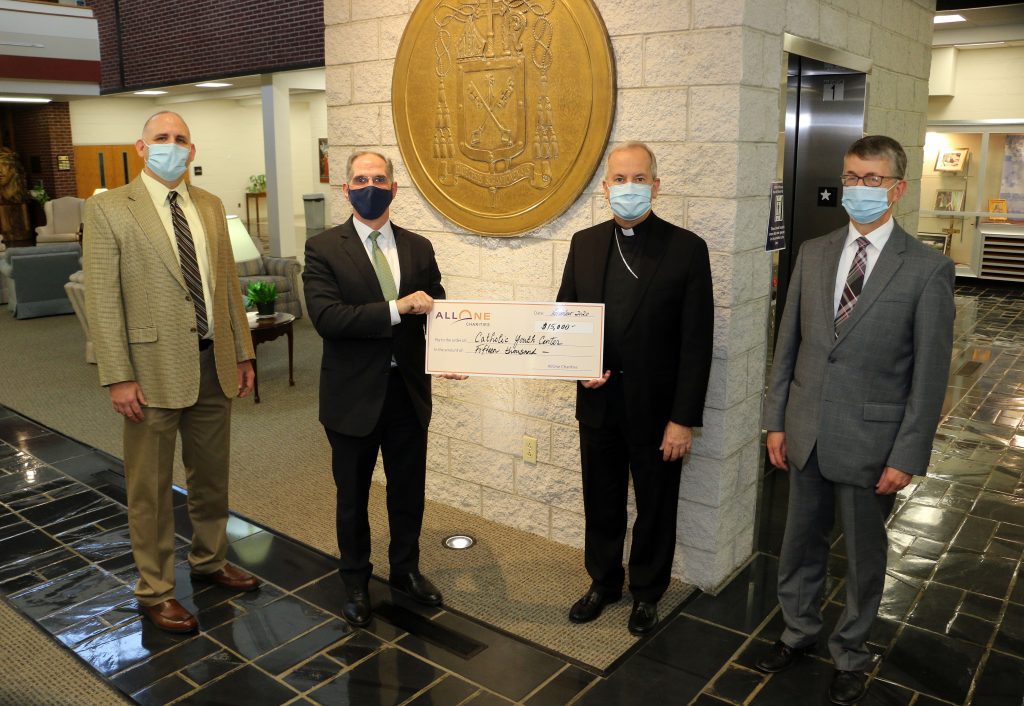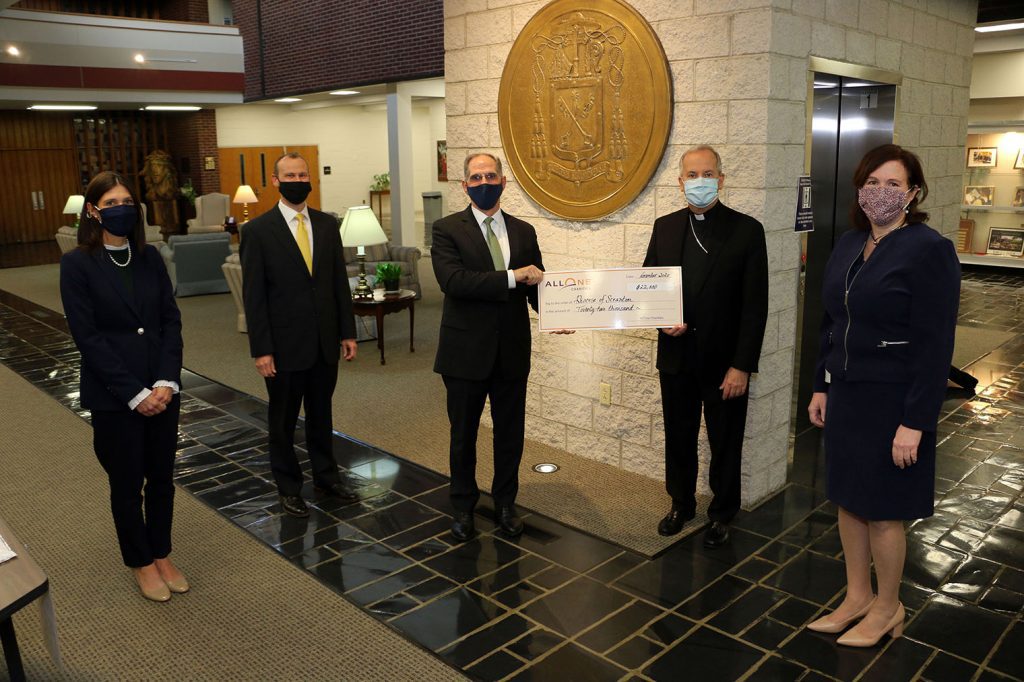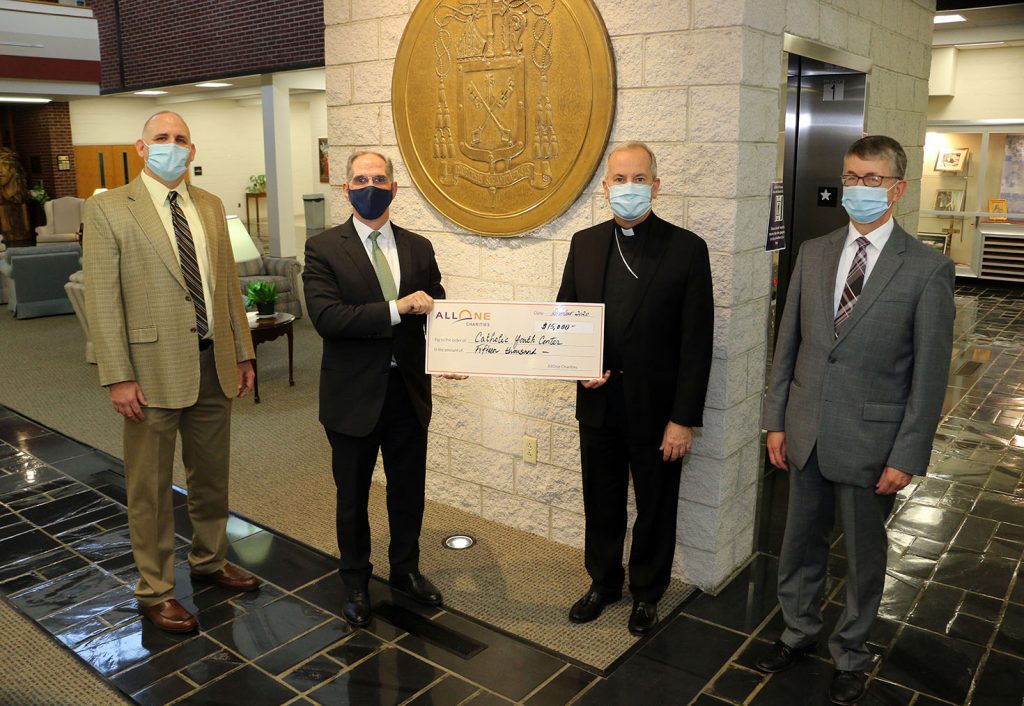Our Lady of Guadalupe
December 12, 2020
Zechariah 2:14-17; Luke 1:39-47
Brothers and sisters, how blest we are to celebrate this great feast of Our Lady of Guadalupe. … How blest we are to gather in this Church. … Yet, the vast majority of us would undoubtedly agree that today’s feast is unlike any other that we have ever celebrated.
A number of our friends and family members are not with us today – out of concern for their own well-being and that of others. … Many of us are confused about how best to live and act in the midst of this pandemic that has enveloped the world. … Some of us have lost our jobs. … Some of us have been physically sick or burdened with the grief that comes from the loss of someone we love. … And all of us have wondered where to turn and what to do to stay safe and to protect the lives that God has given to our care.
Nine months ago, when the first wave of the pandemic was at its peak and our churches were closed, I was celebrating Palm Sunday Mass in front of television cameras and an empty cathedral when something occurred that I will never forget. As I began the Eucharistic prayer, as if from nowhere, I saw two faithful souls through the glass windows of the central doors of the cathedral. As I prayed the words of consecration and lifted up the sacred host and the chalice bearing the blood of Christ, they both knelt on the granite deck, where they remained through the praying of the Lord’s Prayer and the Communion Rite. They blessed themselves at the end of Mass and then seemed to disappear.
Reflecting upon that experience over the past months, it occurred to me that what I was privileged to witness was a powerful sign of the presence of God sustaining his suffering people through their faith.
Brothers and sisters, more than ever, we all face struggles, disappointments and fear, don’t we? … We all want to protect our children, our families and those we love. … And our presence here today, as we celebrate the feast of Our Lady of Guadalupe, is a reminder to us that with faith in God, all things are possible.
Our families and our lives are like every other human family and person – in need of love, healing, and hope – in need of a power bigger than ourselves – the power that we call God. This means that at our core, we’re no different than the family of Elizabeth, Zachariah and John – and Mary, Joseph and Jesus. And while we know very little about the lives of Elizabeth and her husband, Zachariah or even Saint Joseph, Mary’s words give us powerful insight into her life and that of her family.
Her words emerge from a world filled with suffering and pain – a world of hardship, abuse, struggle and grief – a world in many ways no different than our own. Yet, her praise of God and her willingness to say “yes” to God’s plan to bring salvation to his people are rooted in a faith so strong that it serves as the blueprint for authentic discipleship down through the ages, even to our own day.
Sometimes we take the depth of Mary’s faith for granted. Remember, however, that when the angel announced to her that she would be the mother of God, she was not informed that her son would suffer, be put to death and then rise from the dead. She didn’t know any of this. She simply trusted that the God who called her would care for her, regardless of how her life unfolded.
Perhaps, then, we can begin to understand why God looked to Nazareth, a poor, hostile, outback area of Palestine, in order to find a family in which his son could be born. While the world looks elsewhere, God sees greatness in hearts that are humble enough to trust, to acknowledge their need for God’s mercy and to extend that mercy to others.
This simple reality of God’s plan for creation affirms that God continues to work in my life and yours – if we but open our hearts to God’s presence. Like he did with Mary, God looks into my family and yours and calls us to holiness – calls us to be his saints – and calls us to be his presence in the midst of a world that hardly reflects his will and his way.
Take a look around you. Look at the faces that you see – not just the faces of family members and friends, but faces wounded by pain and grief – faces that are longing to be healed – faces that are grateful for God’s abiding presence in their lives. This gathering reminds us that we are loved and cared for by God.
This gathering also reminds us that God accomplishes his great work in the small, quiet and ordinary moments of life – in the simplest and least likely of individuals who open their lives to his.
Finally, in this gathering, Mary reminds us of one more important thing about our journey of faith. As followers of her son, Jesus, we are called not only to receive God’s mercy but also to extend it to our world.
Earlier this year, in reflecting upon Jesus suffering, death and resurrection, Pope Francis Pope Francis shared these thoughts: “Why did all this take place? Once again, it was done for our sake, to serve us. So that when we have our back to the wall, when we find ourselves at a dead end, with no light and no way of escape, when it seems that God himself is not responding, we should remember that we are not alone. Jesus experienced total abandonment in a situation he had never before experienced in order to be one with us in everything. … Today, in the tragedy of a pandemic … Jesus says to each one of us: ‘Courage, open your heart to my love.’ … The tragedy we are now experiencing summons us to take seriously the things that are serious, and not to be caught up in those things that matter less; to rediscover that life is of no use if not used to serve others. Life is measured by love.”
May the love of God, poured forth into the life of Mary – Our Lady of Guadalupe – fill your hearts and give you peace in these most difficult days.
Nuestra Señora de Guadalupe
December 12, 2020
Zechariah 2:14-17; Luke 1:39-47
Hermanos y hermanas, cuán bendecidos somos de celebrar esta gran fiesta en honor a Nuestra Señora de Guadalupe. … Cuán bendecidos somos de reunirnos en esta Iglesia. … Sin embargo, todos estamos de acuerdo que sin duda la celebración de hoy es diferente a cualquier otra celebración que hayamos tenido.
Buen número de nuestros amigos y familiares no están con nosotros hoy, porque muchos de ellos están preocupados por su bienestar y el bienestar de los demás. … Muchos de nosotros estamos confundidos de cómo vivir de la mejor manera y actuar en medio de esta pandemia que ha envuelto al mundo. … Algunos de nosotros hemos perdido nuestros trabajos. … Algunos hemos estado físicamente enfermos o agobiados por el dolor de la pérdida de un ser querido. … y todos hemos querido saber a dónde acudir y qué hacer para mantenernos a salvo y proteger las vidas que Dios nos ha dado a nuestro cuidado.
Hace nueve meses, cuando la primera ola de la pandemia estaba en su apogeo y nuestras iglesias estaban cerradas, estaba celebrando la misa del Domingo de Ramos frente a cámaras de televisión y una catedral vacía cuando ocurrió algo que nunca olvidaré. Cuando comencé la oración eucarística, como de la nada, vi a dos almas fieles a través de las ventanas de vidrio de las puertas centrales de la catedral. Mientras rezaba las palabras de consagración y levantaba la hostia sagrada y el cáliz que contenía la sangre de Cristo, ambos se arrodillaron sobre la plataforma de granito, donde permanecieron durante la oración del Padre Nuestro y el Rito de la Comunión. Se persignaron al final de la misa y luego desaparecieron.
Al reflexionar sobre esa experiencia en los últimos meses, me di cuenta que fui privilegiado de presenciar fue una señal poderosa de la presencia de Dios que sostiene a su pueblo sufriente a través de su fe.
Hermanos y hermanas, como nunca, todos enfrentamos luchas, decepciones y miedos, ¿no es así? … Todos queremos proteger a nuestros hijos, nuestras familias y aquellos a quienes amamos. … Y nuestra presencia aquí hoy, al celebrar la fiesta de Nuestra Señora de Guadalupe, es un recordatorio para nosotros de que, con fe en Dios, todo es posible.
Nuestras familias y nuestras vidas son como cualquier otra familia y persona humana – necesitadas de amor, de sanación y de esperanza – necesitadas de un poder más grande que nosotros – el poder que llamamos Dios. Esto significa que, en el fondo, no somos diferentes a la familia de Isabel, Zacarías y Juan, y María, José y Jesús. Aunque sabemos muy poco sobre la vida de Isabel y su esposo, de Zacarías o incluso de San José, las palabras de María nos dan una visión poderosa de su vida y la de su familia.
Sus palabras emergen de un mundo lleno de sufrimiento y dolor, un mundo de privaciones, abusos, luchas y angustias, un mundo en muchos aspectos no diferente al nuestro. Sin embargo, su alabanza a Dios y su disposición a decir “sí” al plan de Dios para llevar la salvación a su pueblo están arraigadas en una fe tan fuerte que sirve como modelo para un discipulado auténtico a través de los siglos, incluso hasta nuestros días.
A veces damos por sentado la profundidad de la fe de María. Sin embargo, recuerden que cuando el ángel le anunció que ella sería la madre de Dios, no se le dijo que su hijo sufriría, sería ejecutado y que luego resucitaría de entre los muertos. Ella no sabía nada de esto. Ella simplemente confió en que, el Dios que la llamó se preocuparía por ella, independientemente de lo que el futuro la depararía.
Quizá, ahora, podamos comenzar a comprender por qué Dios se fijó en Nazaret, una zona pobre y hostil del interior de Palestina, para encontrar una familia en la que pudiera nacer su hijo. Mientras el mundo mira hacia otro lado, Dios ve grandeza en corazones que son lo suficientemente humildes para confiar, reconocer su necesidad de la misericordia de Dios y extender esa misericordia a otros.
Esta simple realidad del plan de Dios para la creación nos da la certeza que Dios continúa obrando en mi vida y tu vida, si abrimos nuestros corazones a la presencia de Dios. Como hizo con María, Dios mira a mi familia y a tu familia y nos llama a la santidad, nos llama a ser sus santos, y nos llama a ser su presencia en medio de un mundo que apenas refleja su voluntad y su camino.
Mira a tu alrededor. Fíjate en los rostros que ves, no solo de tus familiares y amigos, sino también esos rostros heridos por el dolor y el duelo, rostros que anhelan ser sanados, rostros agradecidos por la presencia permanente de Dios en sus vidas. Esta celebración nos recuerda que Dios nos ama y nos cuida.
Esta celebración también nos recuerda que Dios realiza su gran obra en los pequeños, silenciosos y ordinarios momentos de la vida, en los individuos más simples y menos probables que abren sus vidas a Dios.
Finalmente, en esta celebración, María nos recuerda una cosa importante más sobre nuestro camino de fe. Como seguidores de su hijo Jesús, estamos llamados no solo a recibir la misericordia de Dios, sino también a extenderla a nuestro mundo.
A principios de este año, al reflexionar sobre el sufrimiento, la muerte y la resurrección de Jesús, el Papa Francisco compartió estos pensamientos: “¿Por qué sucedió todo esto? Una vez más, sucedió por nuestro bien, para servirnos. De modo que cuando estamos frente a la pared, cuando nos encontramos en un callejón sin salida, sin luz y sin escape, cuando parece que Dios mismo no está respondiendo, debemos recordar que no estamos solos. Jesús experimentó un abandono total en una situación que nunca antes había experimentado para ser uno con nosotros en todo. … Hoy, en la tragedia de una pandemia … Jesús nos dice a cada uno de nosotros: “Ánimo, abre tu corazón a mi amor” … La tragedia que estamos viviendo ahora nos llama a tomar en serio las cosas que son serias, y no a quedar atrapado en aquellas cosas que menos importan; para redescubrir que la vida no sirve de nada si no se usa para servir a los demás. La vida se mide por el amor “.
Que el amor de Dios, derramado en la vida de María, Nuestra Señora de Guadalupe, llene sus corazones y les dé paz en estos días tan difíciles.
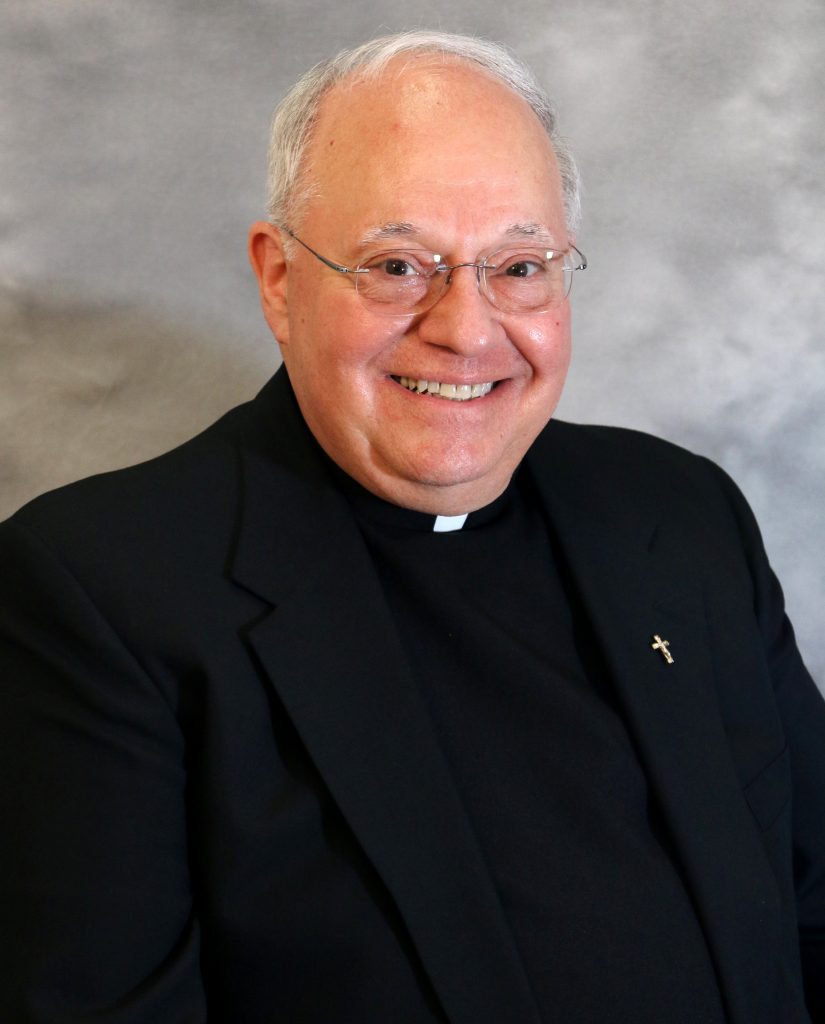 For Father Carmen Perry, a Diocesan priest of 43 years who serves as pastor of Saint Luke Parish in Stroudsburg, the answer came recently while praying the Liturgy of the Hours as he was touched more deeply by one of the readings he has perused so often in the past.
For Father Carmen Perry, a Diocesan priest of 43 years who serves as pastor of Saint Luke Parish in Stroudsburg, the answer came recently while praying the Liturgy of the Hours as he was touched more deeply by one of the readings he has perused so often in the past.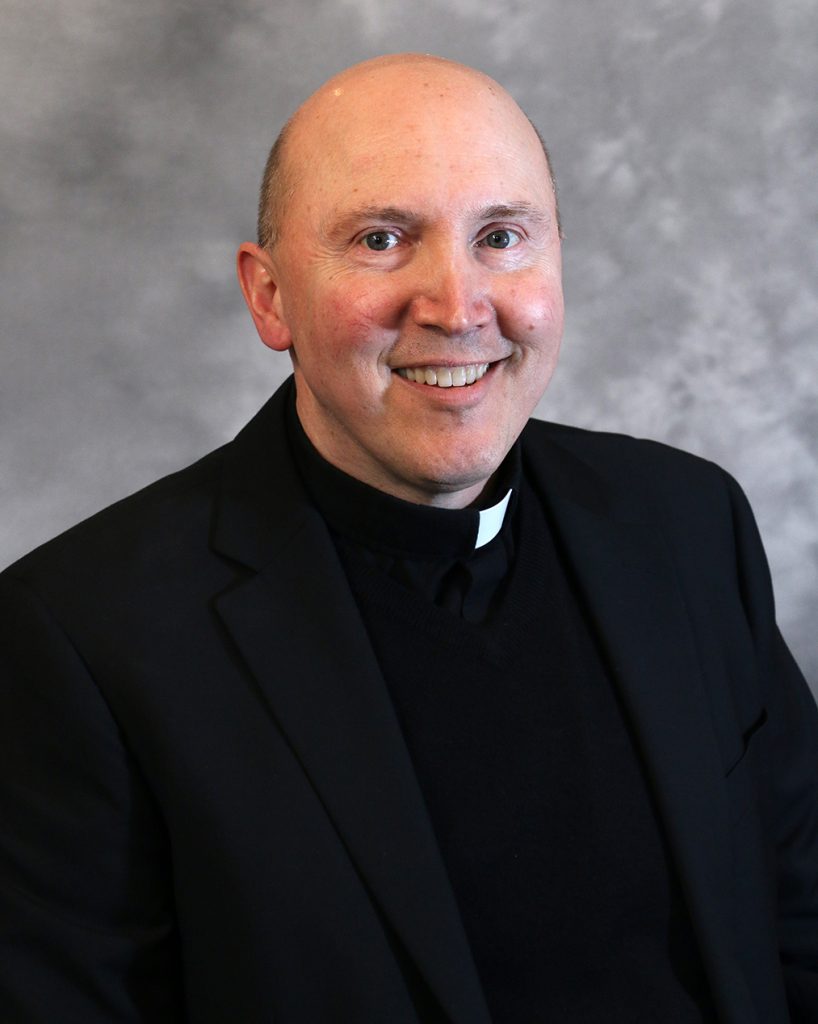 circuit television or virtual broadcasts in the comfort of their own homes, Father Brian J.W. Clarke stated, “The celebration of Christmas Mass will be no less of a celebration of the birth of Christ.”
circuit television or virtual broadcasts in the comfort of their own homes, Father Brian J.W. Clarke stated, “The celebration of Christmas Mass will be no less of a celebration of the birth of Christ.”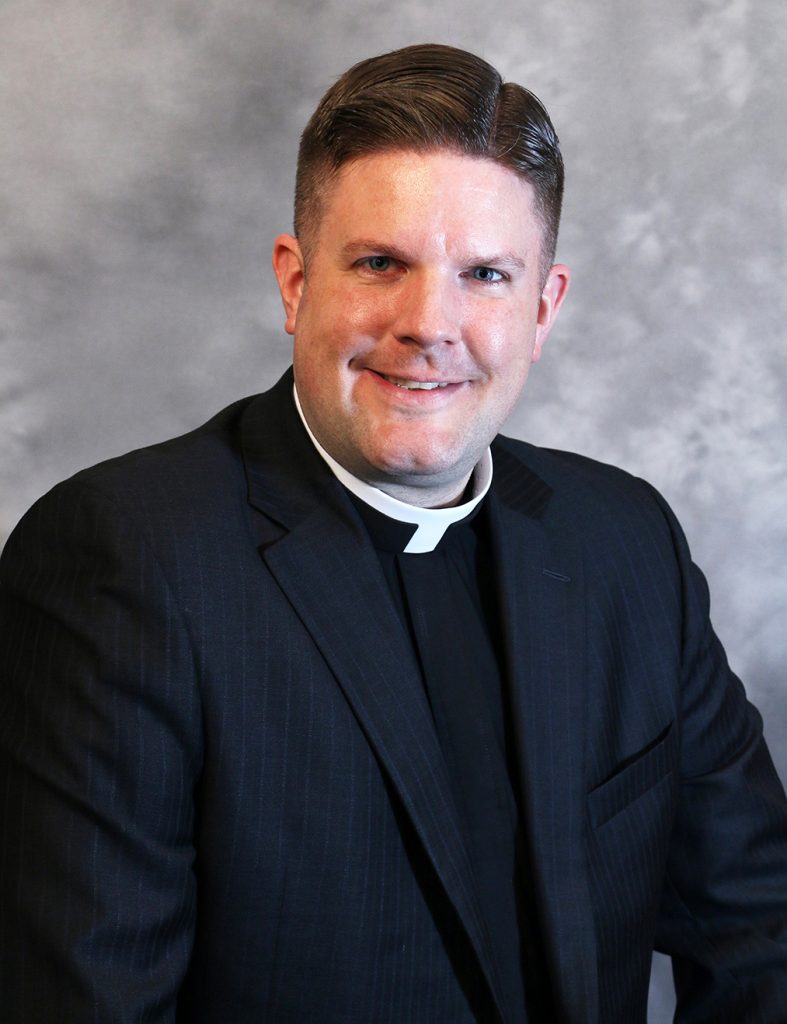 As the pastor of Saint Peter Parish, Wellsboro, and Saint Thomas the Apostle Parish, Elkland, Father David Bechtel plans to convey his Christmas message on the true meaning of the Incarnation by way of hypotheticals: What if all the trappings we associate with Christmas — Santa Claus, toys, festive dinners, decorations and presents under the tree — were suddenly absent from our celebrations? What if we cannot gather with loved ones due to sickness, death or even a global pandemic?
As the pastor of Saint Peter Parish, Wellsboro, and Saint Thomas the Apostle Parish, Elkland, Father David Bechtel plans to convey his Christmas message on the true meaning of the Incarnation by way of hypotheticals: What if all the trappings we associate with Christmas — Santa Claus, toys, festive dinners, decorations and presents under the tree — were suddenly absent from our celebrations? What if we cannot gather with loved ones due to sickness, death or even a global pandemic?
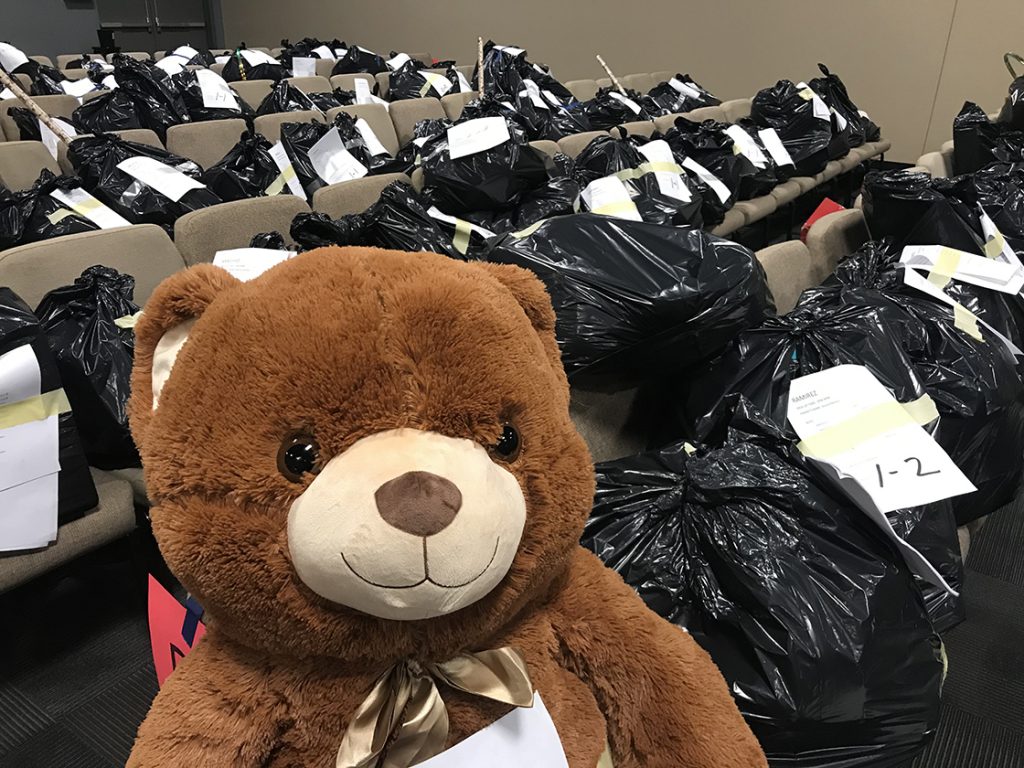
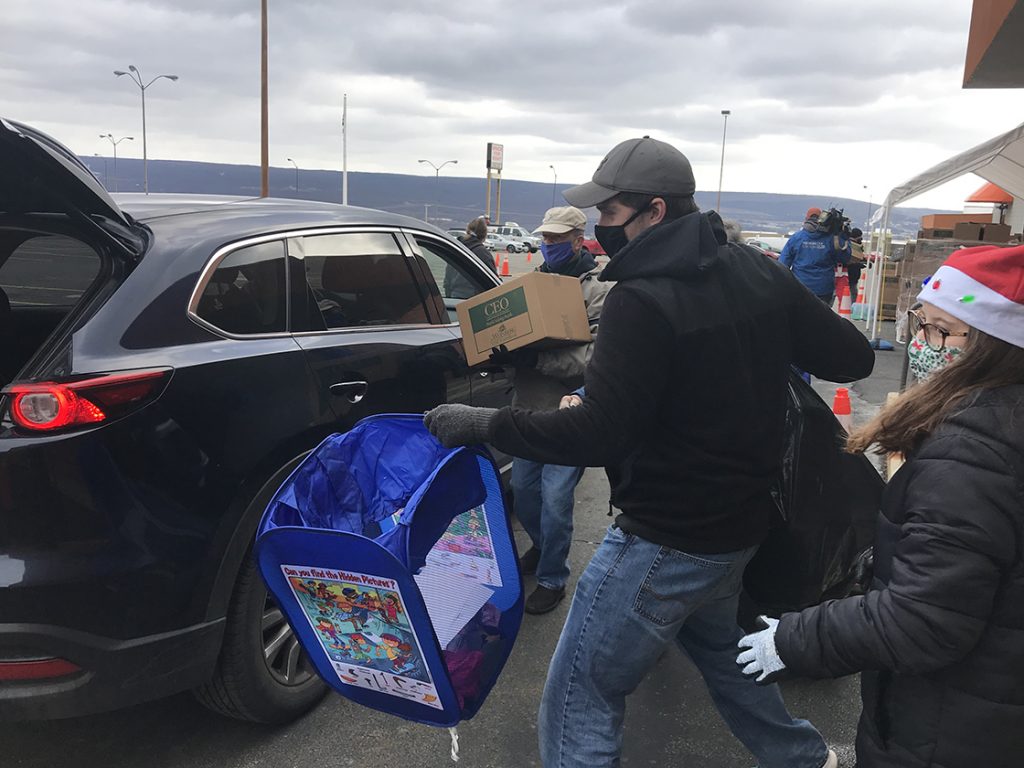
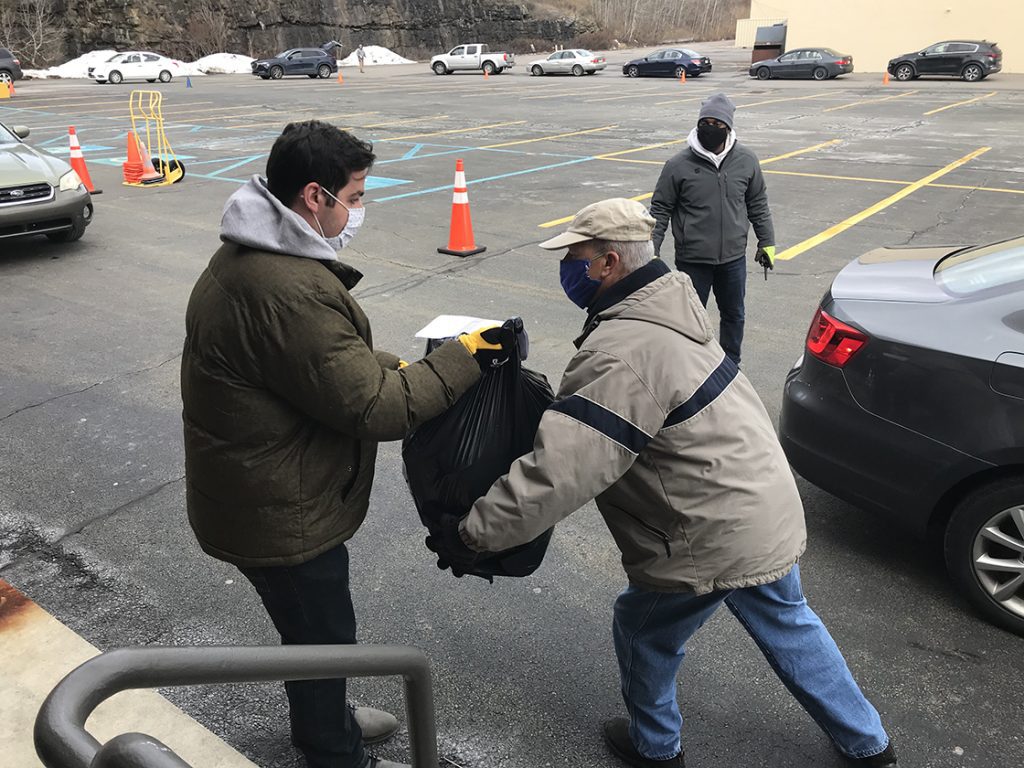 Because of the pandemic, many families registered for help for the first time.
Because of the pandemic, many families registered for help for the first time.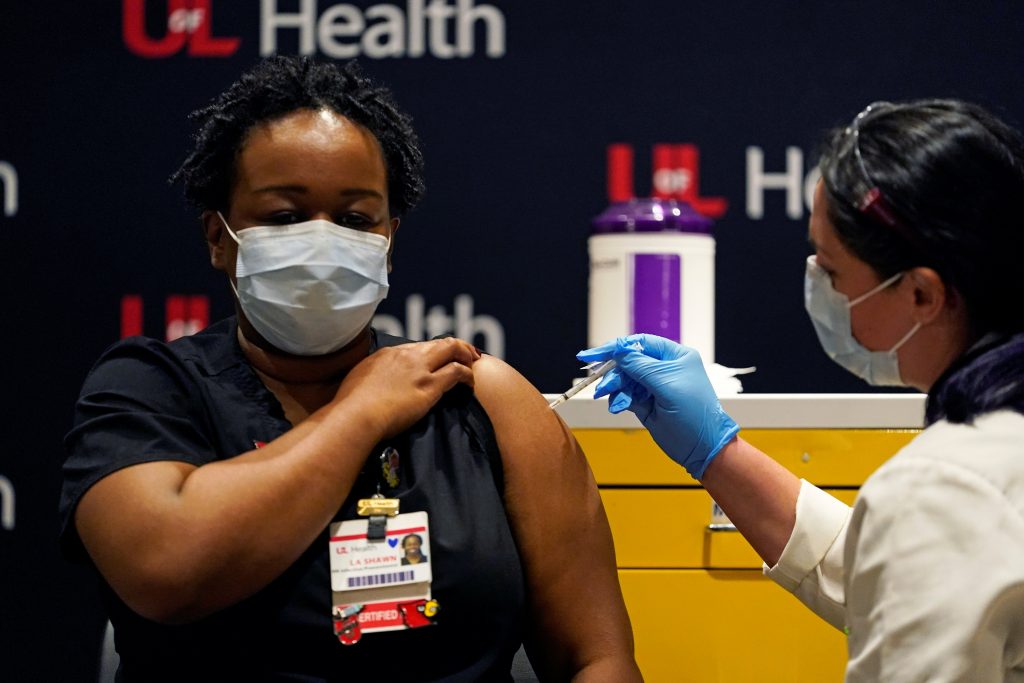
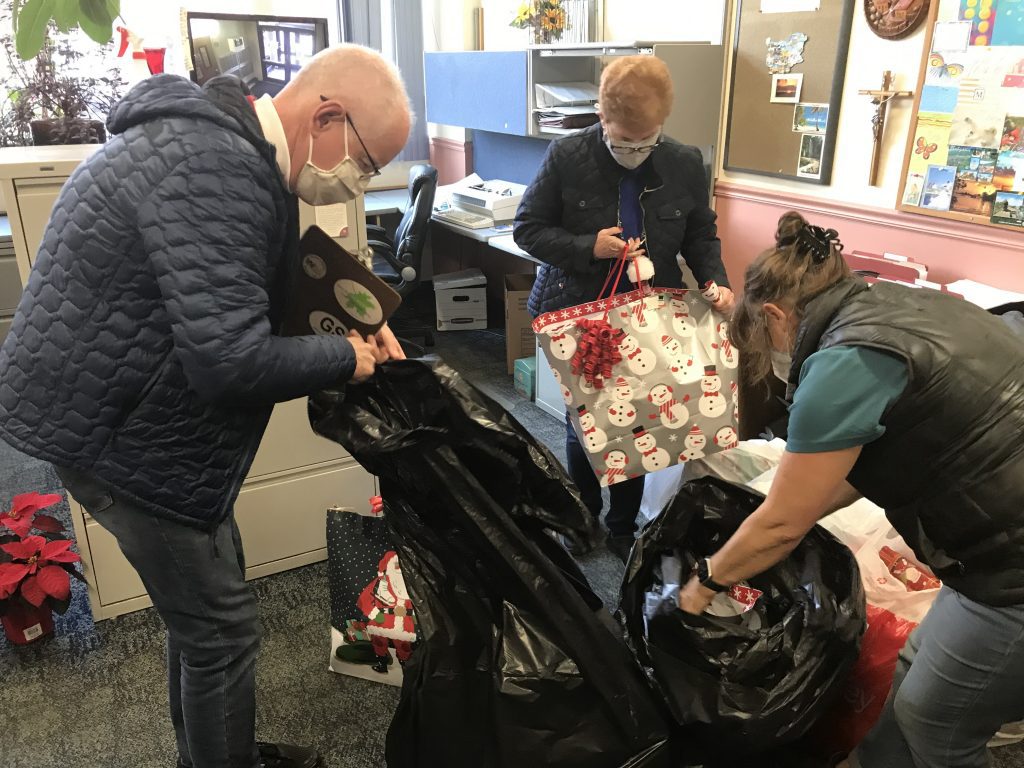
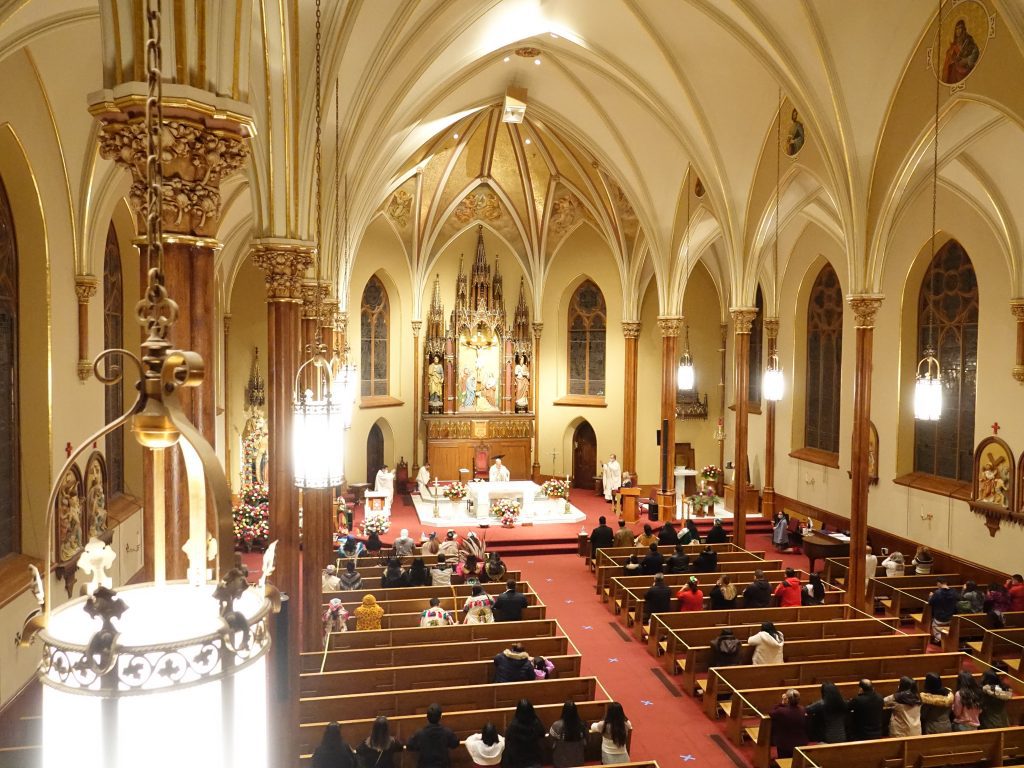
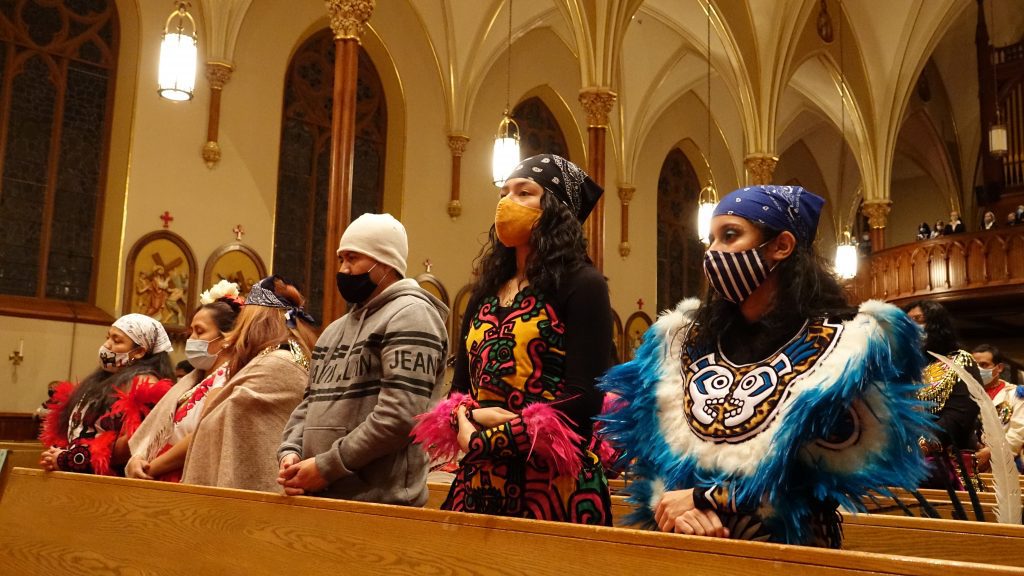 Neumann Parish in South Scranton at 11:00 a.m., the second at Saint Nicholas Parish in Wilkes-Barre at 6:00 p.m.
Neumann Parish in South Scranton at 11:00 a.m., the second at Saint Nicholas Parish in Wilkes-Barre at 6:00 p.m.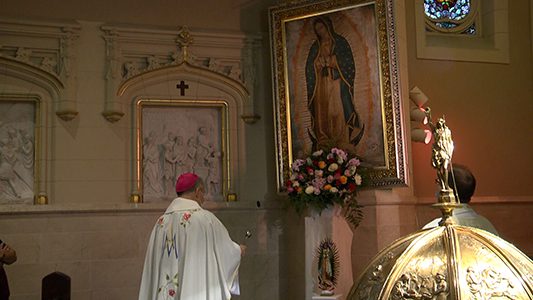 Bishop Bambera told the faithful that sometimes we take the depth of Mary’s faith for granted.
Bishop Bambera told the faithful that sometimes we take the depth of Mary’s faith for granted.